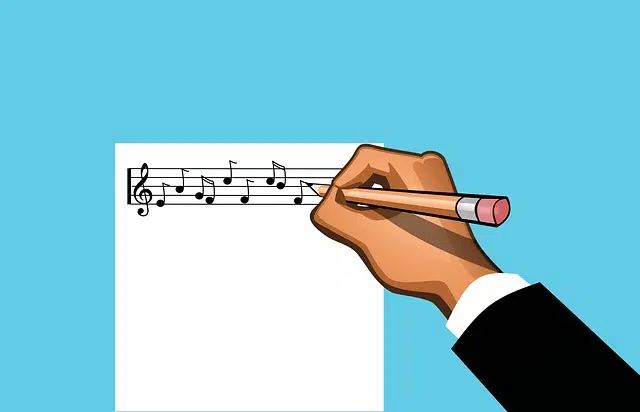
A composition can be a text.
From the Latin compositio , composition is the action and effect of composing (putting together several things and placing them in order to form one; constituting something). A composition can be an artistic (literary, musical, etc.) or scientific work.
For example: «The new composition of the Uruguayan singer demonstrates the influence of Bob Dylan on his creations» , «The Guatemalan writer surprised the audience with a crude composition about the reality of his country» , «A composition with various scraps of fabric gave forms the winning painting of the third municipal art competition « .
Composition in education
The notion of composition is usually used in the educational field to name the text that the student develops based on a topic , whether given by the teacher or chosen individually, to improve their command of the language and their ability to express themselves: "Tomorrow I have to deliver a composition of a free topic to my language teacher» , «Take note: make a composition about life in the colonial era, narrated in the first person» .
For grammar , composition is a procedure that consists of creating words from the union of two words . In this way, a new semantic and syntactic unit is generated: the term videoconference , widely used today, is a clear example of a compound word, since it is obtained from the union of "video" and "conference" .
The composition can be developed from various lexical combinations (verb/noun, noun/noun, noun/adjective, adjective/adjective). "Corkscrew" , "noon" , "blanquiceleste" and " whoever " are linguistic compositions.
Composition, on the other hand, is a synonym for composure (measurement, modesty): "Keep the composition, there are important people here: fix your tie and try not to move so much."

Many creators have remained in history for their musical compositions.
musical creations
The last three hundred years of our history have given rise to revolutionary creations in all fields, from literature to technology, and music has always been present, as an inspiring source of other disciplines and as an inevitable companion of the most sensitive souls. Let's see below some of the compositions that have most influenced our development.
First of all, we have the legacy of Johann Sebastian Bach, one of the greatest composers of all time, born in Germany in 1685. Among his most important works is " St. Matthew Passion ", a choral piece of beauty. and incomparable strength; In it, beauty and pain are combined, with melodies that penetrate to the depths of the spirit, generating a whirlwind of feelings and sensations in listeners. It is considered by many to be the musical creation par excellence.
When talking about transcendent compositions, we cannot forget the music of Ludwig van Beethoven, another undisputed genius, also of German origin, born in 1770. Just as with Bach, some of his works are known by people from all walks of life. and, without a doubt, none surpasses his " Symphony No. 9 " in popularity. It is a composition of unparalleled richness, which has one of the most remembered melodies of all time: the unmistakable " Ode to Joy ".
Lastly, and not exactly because he is of less importance than the first two, is Wolfang Amadeus Mozart, composer of composers, born in Austria in 1756 and author of countless works of great popularity, as well as dark and controversial stories. . When the word " requiem " is pronounced, it is impossible not to accompany it with the name of this prodigy . His vision of this type of composition, intended for the deceased, is a clear example of his greatness and his humanity, his strength and his weaknesses. His « Dies irae » and his « Lacrimosa » stand out especially.
